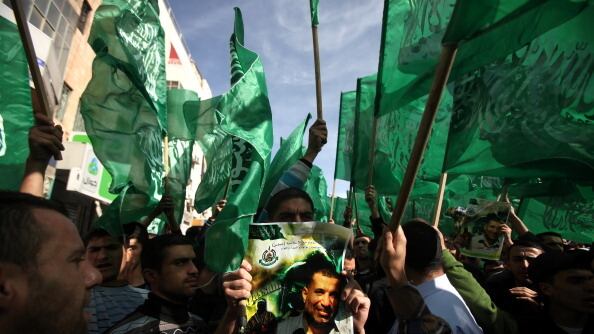The time has come for Israel to do what it has avoided doing since it pulled back its army and settlers from the Gaza strip in 2005: sit down and negotiate a long-term arrangement with the fundamentalist Islamic Hamas rulers of Gaza. As the current Israeli operation, “Pillar of Defense” (Pillar of Smoke in Hebrew), continues, it is becoming increasingly clear that the Israeli government is extremely reluctant to order a ground forces invasion by the Israel Defense Forces (IDF). Ongoing air attacks, accompanied by the call-up of armored, artillery, and infantry forces, are supposed to make Hamas beg for a ceasefire, but there is no sign of the Islamic movement doing any such thing.

During Israel’s previous “Cast Lead” operation in 2008, when the Gaza strip was bombed for some three weeks and invaded with ground troops, Tzipi Livni, the foreign minister at that time, was asked by a foreign reporter what would be “an acceptable rate of fire from Gaza.” Manifestly annoyed, she replied: “Not even one,” which prompts the question: why has Israel accepted many more than one since Cast Lead?
In point of fact, a senseless cycle of violence has been the rule since Israel unilaterally pulled the IDF and the Jewish settlers out of the Gaza strip in 2005. Prime Minister Ariel Sharon, who was on record as saying that the small Gaza village of Netzarim was “more important than Tel Aviv,” carried out this policy reversal with great determination. But he made absolutely no attempt to coordinate his withdrawal with the Palestinian side. He could surely have attempted an agreement after such a dramatic step, preferred to “throw the keys over the fence.” The fence remained in place as did Israel’s maritime siege of the area, with the result that there was no peace between the sides. Various Palestinian forces fired rockets into Israel, which reacted by limiting the goods allowed into Gaza from its territory. Gazans responded by digging hundreds of tunnels through which both military and civilian goods were smuggled into their territory from Egyptian-occupied Sinai. A year later, in 2006, Hamas won the Palestinian general election and a year after that the movement took over the administration in Gaza, expelling the officials of the less extreme Fatah movement. Hamas-ruled Gaza became a hostile territory from which missiles were periodically fired into Israel.
Israel does not have to accept this state of affairs. The generally accepted thesis that a conventional army cannot defeat irregular forces does not apply to Gaza. The Gaza Strip is not a vast mountainous or jungle region. It is a mere 140 square miles in area, 25 miles long and from four to seven miles wide. If the recently-mobilized reserves were ordered to re-occupy the strip they could do so in a relatively short space of time. Admittedly the casualties on both sides would be considerable, but the IDF could certainly deploy in every square yard of every street and alley of every town, camp and village in the area. The Hamas administration could be disbanded, anyone suspected of hostile activity could be arrested, every arms workshop dismantled, and every tunnel destroyed, but if Israel is not prepared to do this, it should consider the other option.
Despite the myth that negotiations with Hamas are impossible and there is nothing to talk about, Israel has in the past negotiated with the Islamic movement and reached agreements with it. Apart from several temporary truces, it negotiated the release of Sergent Gilad Shalit a year ago. Although Hamas does indeed refuse to recognize Israel officially, the movement is also on record as agreeing to a hudna or ta’adiya, a truce that could last as long as ten years. This amounts to de facto recognition and anyway ten years is a long time in the Middle East.
There is absolutely no need for Israel to spend vast sums reinforcing its buildings around Gaza and even greater sums on sophisticated anti-missile systems. Nor is it fated that Israelis and Palestinians on both sides of the border live in perpetual fear. Israel must change direction: if it is not prepared to pay the military and diplomatic price of a full-scale military action, it must sit down with its enemies and negotiate a long-term truce. The present idiotic situation should not be allowed to persist.






